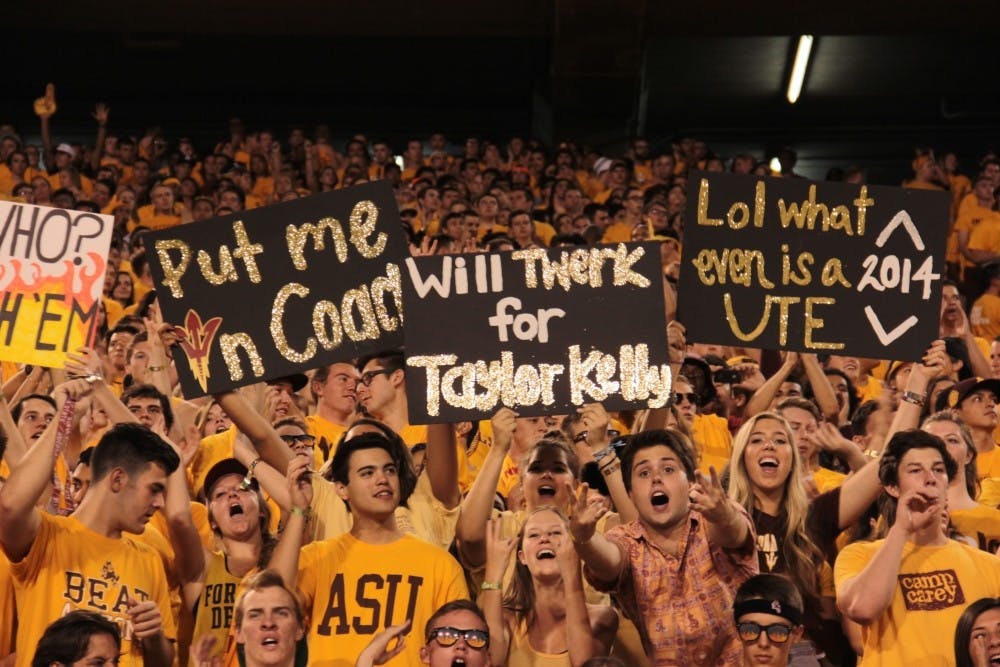For many, face paint is an innocent way to show school pride. However, controversy struck football fans last October after some fans were criticized for wearing blackface to the Blackout-themed game.
The ASU Athletics Department released a statement saying they discouraged the use of face paint at any event on Monday.
"As an inclusive and forward-thinking university, it is important for us to foster an environment in which everyone feels safe and accepted. Therefore, we discourage the use of face paint at any event, whether the theme is black, maroon, gold or white, and ask our fans to show their Sun Devil Pride in other way," according to the statement.
The Associated Students of ASU and members of the Black African Coalition worked with the University, and urged fans not to wear face paint, primarily black face paint, at the games. BAC even went a far as introducing a anti-facepaint bill to USG.
Although Tempe USG President Isaac Miller said the student pictured in blackface promised that he never meant anything by it, the photo ignited conversations about cultural insensitivity and potential racism in the student body.
As ASU approaches their annual blackout game against University of Colorado Boulder, ASASU released a letter to the student body warning students not to wear face paint in a statement on Oct. 7.
Although this statement leans toward the blackface issue, Miller said he believes enforcing rules against racially degrading attire is crucial to the ASU community, especially after the University’s controversial history with racism.
In 2014, for example, the ASU fraternity Tau Kappa Epsilon made national news for throwing a Martin Luther King Jr. day party. Participants of the party drank from watermelon cups, wore bandanas, flashed gang signs and used the hashtags “#blackoutformlk” and “#ihaveadream.”
The fraternity was later expelled from the University, but not after screenshots of the Instagram photos coated the internet.
“With this policy in particular, enforcement provides a reason for attendants to refrain from disrespectful behavior at the games and contributes to an environment in which students can feel honored, no matter what background they come from,” Miller wrote in an email.
Miller emphasized the importance of drawing awareness to the issue. He said that while the original blackface had no “intention of committing an act of cultural disrespect or appropriation,” it was crucial for students to be aware of the message they were sending.
Business law sophomore Michael Smith said he hopes to see the general ideology of ASU students shift as organizations like BAC draw more attention to it.
“I don’t think the problem is that they wore it, I think the problem is that they weren’t aware it was offensive. It kinda shows a disconnect among some students,” Smith said.
The ASU Black and African Coalition declined to comment on the issue.
Reach the reporter at megan.janetsky@asu.edu or follow @meganjanetsky on Twitter.
Like The State Press on Facebook and follow @statepress on Twitter.




